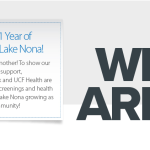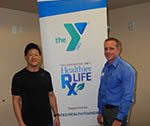
There is no doubt that healthcare is changing and, along with it, even the way we practice as providers. We all know that getting sick is no fun, and we often avoid going to the doctor for various reasons, including the inconvenience or expense. You might try and tough it out as long as possible, but there will come a point when it’s time to see a doctor!
What if there were another way you could avoid these last-minute visits? While we can’t always avoid getting sick, there is a lot we can do to keep ourselves and our families healthy. It starts by being proactive. As a physician focusing on wellness, I have the unique opportunity to help you help yourself. I know that you are the health expert on “you,” and I am simply your healthcare advocate and participant. Here are seven things you can do today to take control of your health.
Listen to Your Body
We often spend time prioritizing work, school and family and don’t take the needed time for self-reflection. So, the first step in your health transformation is taking a personal inventory of how you feel, how you function and perform, and how you are represented to the world. It is most important to listen to your body and be aware of what it is telling you.
Know Your Numbers
How do you know what your body is telling you? In addition to how you feel, there are a few simple numbers to know that will help your healthcare provider assess your risk for developing certain diseases 1. Body Mass Index (BMI); 2. Blood Pressure; 3. Lipid Profile (Cholesterol and Triglycerides); 4. Fasting Blood Glucose; and 5. Waist Circumference.
Have a Health Action Plan
Now that you have a frame of reference with parameters to monitor, what can you do about them? For starters, you need to develop a health action plan. A health action plan identifies your health needs, how to improve them, who will assist, and when to follow up. The focuses of the plan are the key action points.
Create a Medical Home
Do you know where to turn if you have questions or need guidance? With a goal to maximize health outcomes, a medical home is a team-based healthcare delivery model that provides comprehensive and continuous medical care. Understand that you have an active role in the relationship with your healthcare team, and you might need to reconsider your team if necessary.
Schedule Your Yearly Check-up
You must maximize your medical team. I recommend a minimum of once yearly check-ups with your primary physician for routine preventative screening and exams. A huge part of disease prevention is being able to identify and treat some conditions in their earlier stages for better outcomes. At every age, your annual check-up is a must.
Improve Your Lifestyle Habits
Implement your health action plan. I can’t emphasize enough how your lifestyle affects your overall health and well-being. By improving a few habits – such as nutrition, physical activity, stress management, and adequate sleep – you can improve your health and decrease your risk for chronic illnesses.
Practice Positivity
Finally, learn positive thinking skills. This means approaching difficult situations in a more positive and productive way. Start by eliminating negative self-talk. Do you find yourself personalizing many events and blaming yourself? Do you often focus on tasks uncompleted versus those accomplished? If so, you might need to refocus your self-talk and not overlook the power of a positive attitude.
There is no better time than now to take charge of your health and wellness. Having knowledge without taking action is just like not knowing. I challenge you to put your knowledge into action and take the time to improve your healthcare outcomes.


